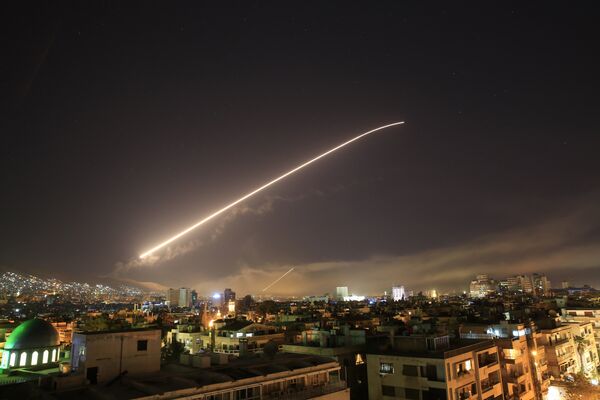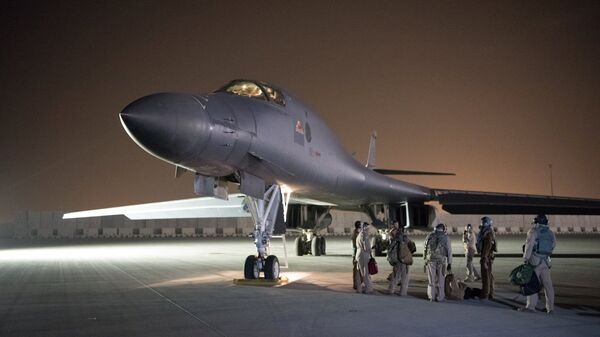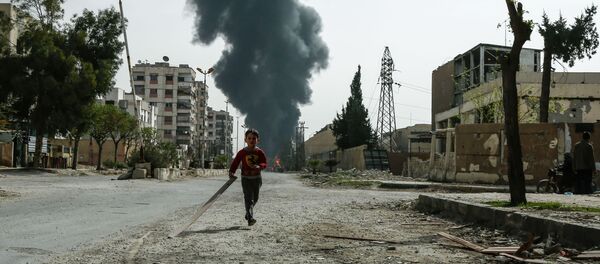The April 14 missile attack conducted by the US, France and the UK is the continuation of a process which started with the bombing of Yugoslavia in 1999 and the invasion of Iraq in 2003, says Bora Bayraktar, a Turkish journalist and Middle Eastern affairs analyst, stressing that the strike prompts serious concerns from the point of view of international law and foreign relations.
"These steps were taken without a relevant UN resolution and in violation of international law," the analyst told Sputnik Turkey. "If this unjustified situation is institutionalized this would inevitably lead to chaos. First of all this situation poses a threat from the political and legal point of view; it also poses a danger of upsetting the international balance of forces."
At the same time, the Turkish journalist opined that the US-led coalition's strike on Syria had failed to achieve its objectives, as it had not changed the balance of forces, being a mere demonstration of power.
"In my opinion, this military operation clearly showed the weakness of the Western forces," he suggested. "They carried out a limited attack, and then retreated, not striking the Russian positions on Syrian territory, or next to them. This approach has demonstrated the political weakness and hesitant position of the West."
According to the analyst, it deserves special attention that the missiles were fired from the water area of the Red Sea and the Persian Gulf. He remarked that this information remains largely neglected by the Turkish mainstream media.
"Meanwhile, this indicates that not only the United States, France and Great Britain were involved in this [strike]," Bayraktar pointed out. "That means that they received approval from Egypt, Saudi Arabia and the countries of the Persian Gulf, and that this step was taken within the framework of the bloc formed by these countries. However, I repeat, in the end, this step has exposed a political weakness of the Western alliance."
On April 14 the US, France and the UK fired about 103 missiles at Syria, 71 of which were intercepted by Syrian air defense systems. The strike was conducted under the pretext of an alleged use of chemical weapons in Douma, Eastern Ghouta, which reportedly took place on April 7, 2018.

The Douma Attack: Yet Another False Pretext
However, the Russian Defense Ministry has cast doubt on the supposed "chemical attack" referring to the fact that a chemical corps commission on the ground had found no traces of chemical poisoning with chlorine or sarin.
On the other side of the Atlantic Ocean, US Congressman Thomas Massie called attention to the fact that the US director of national intelligence, the defense secretary and the secretary of state had "provided zero evidence" to back the assumption that it was the Syrian government who conducted the alleged chemical strike.
The congressman suggested that either the Trump administration had chosen not to provide proof to Congress or they had none.
For his part, Russian Foreign Minister Lavrov told a joint press conference in Moscow on April 20 that Russia had obtained evidence "with illustrations, with pictures, with interviews of concrete people."
"Meanwhile, from the [US] partners we only hear that they have evidence, be it the incident that allegedly occurred in Douma, or the incident in Salisbury," Lavrov pointed out, referring to the poisoning of former spy Sergei Skripal and his daughter Yulia that took place in Salisbury, England on March 4, 2018, which was groundlessly blamed on Moscow by the UK and its allies.
The views and opinions expressed by Bora Bayraktar are those of the speaker and do not necessarily reflect those of Sputnik.




